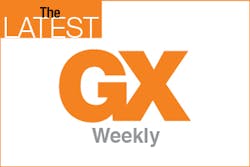From the IBTTA: IBTTA Commends Congressional Budget Office Report on the Economic Benefits of Tolling
WASHINGTON, DC – The International Bridge, Tunnel and Turnpike Association (IBTTA) applauds a new Congressional Budget Office report, Approaches to Making Federal Spending More Productive, which examines the economic advantages of tolling as a means of funding the nation’s highway system.
“It is encouraging to see the economic benefits of tolling explored in such a clear-eyed manner,” said IBTTA Executive Director and CEO Patrick D. Jones. “The CBO’s objective, impartial analysis of tolling as one funding method provides valuable insights in today’s world where every highway dollar counts.”
“And as the study makes clear, tolls have the potential to do much more than fund the maintenance, repair and expansion of our highway system,” Jones said. “As CBO explains in its report, implementing tolls on highly traveled highways can boost productivity by incentivizing more efficient travel patterns for workers, and by reducing delivery and inventory costs associated with goods by moving them more quickly to their destinations, among other benefits. These kinds of gains extend far into the broader economy.”
The nonpartisan agency’s study, “Approaches to Making Federal Highway Spending More Productive,” was conducted at the request of former Senate Finance Committee Chairman Max Baucus, and was released this month. External reviewers from the Council of State Governments, RAND Corp., Brookings Institution and other organizations also provided input, CBO noted.
CBO said that one of the key reasons for examining new ways to make federal highway spending more productive is that the gasoline tax revenues that support the Highway Trust Fund have fallen critically short of needs, requiring lawmakers to shift billions of dollars into the fund from other sources. Tolling emerged as one of the primary alternative funding approaches examined in the report.
“On the most basic level, the gas tax is no longer a viable or sufficient funding solution.” Jones said. “And as the CBO now points out, the gas tax also fails to make the grade in driving long-term economic output the way tolling can, and lacks the ability of a tolled system to match funding to actual highway usage.”
“This study is a breath of fresh air,” Jones said. “We hope Congress studies it carefully. As the report says, existing Interstate highways—where tolling currently is not permitted—are typically the most heavily used roads, and would ‘yield the greatest benefits’ from tolling.” “The revenues gained from tolling on Interstates could be used to make repairs, expand capacity, or substantially renovate the Interstate system,” the report says.
“This report provides solid evidence to help elected officials make more informed decisions about toll roads. We hope members of Congress will use the information from this report to ease the current restrictions that limit the economic and mobility benefits of toll roads.”



